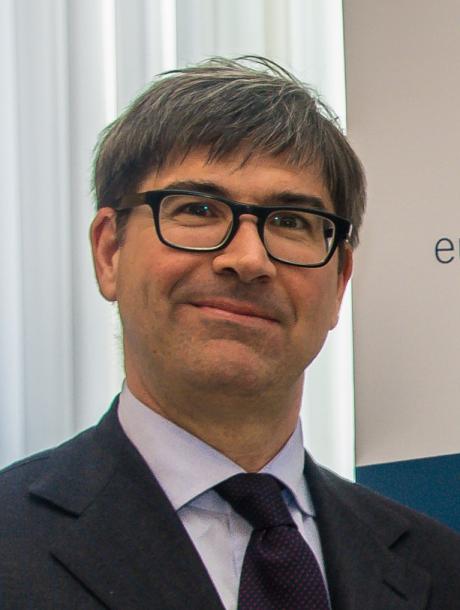Europe’s Innovation Gap
Issue № 8 | November 2025
Welcome back!
It’s no secret that investing in research and development (R&D) is crucial for economic growth, but not all investments are alike. Refining technologies already close to market is not the same as funding disruptive innovation. In this respect, the EU appears to be stuck in the former mode.
Its largest R&D investors remain traditional manufacturers, such as automotive firms, rather than software or deep-tech companies, like in the US and China. A recent study finds that more than half of Horizon Europe funding supports firms with limited innovation capacity — despite the program’s ambition to foster breakthrough research. Another study shows that, between 2013 and 2023, venture capital funds raised around $130 billion in the EU, compared with $924 billion in the US — roughly seven times less.
How might the EU escape such a mid-tech trap? To explore the issue, we are pleased to feature an interview with Professor Luca Enriques. As he points out, the problem arises from the interaction of several structural factors: “Bank-centric finance, rigid labour markets, and a regulatory environment intolerant of failure all combine to suppress entrepreneurial risk-taking.”
Put simply, the problem is not merely a lack of funds, but how these funds are allocated. This principle underlies the planned evolution from the existing Capital Markets Union (CMU), launched in 2015, to the proposed Savings and Investments Union (SIU), yet to be established.
Taking a little step back in time, as argued by Wolf-Georg Ringe in a ECGI paper, the creation of the CMU was initially motivated by the need to strengthen integration of capital markets — and to discourage the UK departure. Both aims proved to be unsuccessful.
As Professor Enriques neatly illustrates, the SIU “represents a shift in mindset.” The goal is not just to make European capital markets larger and less fragmented, but to switch from safe investments towards riskier, more rewarding ones. In other words, the plan envisions a less bank-dependent economy, where high-tech champions might flourish. Clearly, this requires citizens to allocate their savings more productively — which in turn explains the EU’s parallel efforts to improve average financial literacy.
However, while most agree that start-ups and scale-ups need a better environment, there is less consensus over which institutional tools should be deployed to achieve it. The debate centers on two distinct approaches, though not mutually exclusive, as remarked by Professor Enriques in a previous ECGI blog post.
The first seeks to establish a fully European corporate form, a sort of 28th regime. The second, by contrast, combines measures like model articles of association and dedicated dispute resolution mechanisms with regulatory competition, sanctioning member states that prevent firms from selecting their preferred jurisdiction for incorporation.
Yet, as Professor Enriques notes, both approaches face significant challenges. Full harmonization may be undermined by national courts interpreting EU rules through domestic lenses, while targeted harmonization — though more feasible due to its narrower scope — can still be threatened by entrenched national interests.
Building a well-balanced SIU will be a worthy yet demanding task. After all, even the US capital markets union took nearly two centuries to take shape, as Jeffrey Gordon and Kathryn Judge recollect in their ECGI research.
Time will tell whether the SIU can ensure “that corporate law becomes a factor of entrepreneurial success rather than a burden,” as concluded by Professor Luca Enriques. We hope you enjoy the interview and, as usual, welcome your thoughts.
With best wishes,
~ Riccardo
Featured Interview
with Luca Enriques
This interview draws on the ongoing research and policy engagement of Professor Luca Enriques, whose work examines European corporate law, regulatory competition, and financial integration. It builds particularly on themes discussed at the recent conference he co-organised, "Harmonization and Competition in Corporate and Insolvency Law Within the Framework of the Savings and Investments Union" Explore more of Luca Enriques’ work here.

More from ECGI
Working papers:
📄 The Politics of Capital Markets Union (Wolf-Georg Ringe, Aug 2019)
📄 The Rise and Fall of Regulatory Competition in Corporate Insolvency Law in the European Union (Horst Eidenmüller, Jun 2019)
📄 Regulatory competition in European company law. Where do we stand twenty years after Centros? (Stefano Lombardo, May 2019)
📄 The Origins of a Capital Market Union in the United States (Jeffrey Gordon and Kathryn Judge, Apr 2018)
📄 EU Company Law Harmonization Between Convergence and Varieties of Capitalism (Martin Gelter, Jun 2017)
📄 Banking Union: Aspects of the Single Supervisory Mechanism and the Single Resolution Mechanism Compared (Eddy Wymeersch, May 2015)
ECGI Blog:
📘 Regulatory Barriers and the Quest for an Integrated European Market for Innovation (Luca Enriques, Oct 2025)
More from the Blog...
About the author

Riccardo Rao is an Academic Fellow in the Department of Law at Bocconi University. He earned his PhD in Business Law from the Universities of Udine and Trieste in 2025. His doctoral research focused on benefit corporations, with a comparative analysis across Europe and North America. He has a strong interest in interdisciplinary perspectives and is particularly passionate about the economic analysis of law, as well as history and geopolitics.
✉️ Please feel free to get in touch, share your thoughts and let us know how we're doing, email future@ecgi.org.
